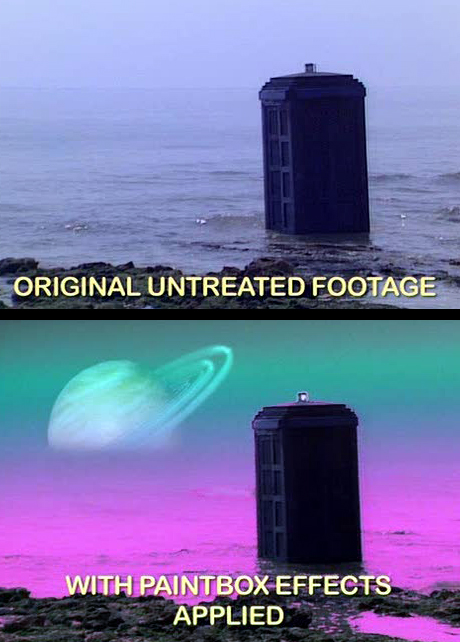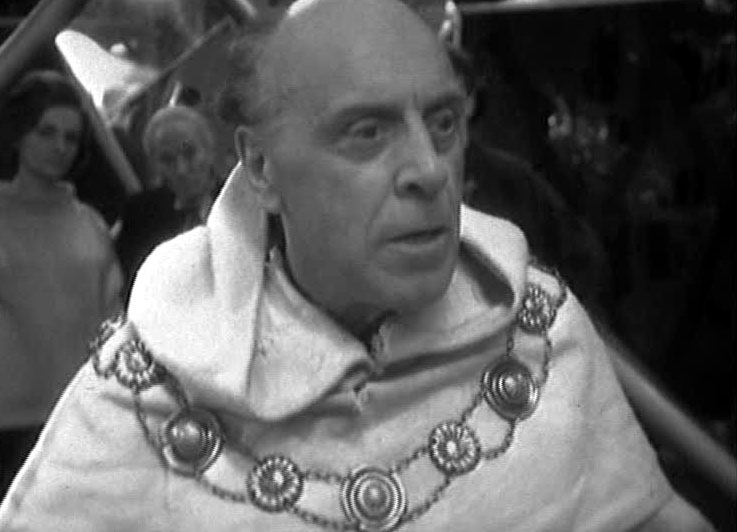Transmat:Doctor Who: Difference between revisions
No edit summary |
Eyacorkett (talk | contribs) mNo edit summary |
||
| (132 intermediate revisions by 8 users not shown) | |||
| Line 1: | Line 1: | ||
__NOTOC__ | __NOTOC__ | ||
{{template:transmat:{{PAGENAME}}}} | |||
<div id="tr-box-container" style="width:98%"> | |||
<div | <div id="tr-box-container" class="tr-box-cols" style=margin-top:40px> | ||
<div id="box-container" class="box-cols | <div class="tr-box one"> | ||
{{thead|The women who gave ''Doctor Who'' back to us}} | |||
<div class="box | [[file:JaneTranter.jpg|center|link=http://tardis.wikia.com/wiki/Transmat:Doctor_Who?file=David_Tennant_interviews_Doctor_Who_Producers_-_Doctor_Who_Confidential_-_BBC]] | ||
{{tcap|Click for video}} | |||
Think ''Doctor Who'' is just for boys? Don't you believe it. Not only was the show's [[Verity Lambert|very first producer]] a woman, but it would never have come back without the fierce advocacy of '''[[Jane Tranter]]''' and '''[[Julie Gardner]]'''. Considering her importance to ''Doctor Who'' it's somewhat ironic that Tranter's only on-screen ''credits'' are for ''[[Torchwood: Miracle Day]]''. But Gardner, her "partner in crime", is tied only with [[Russell T Davies]] as the most prolific producer in ''[[Doctor Who]]'' history. | |||
</div> | </div> | ||
<div class="tr-box two"> | |||
{{thead|Industrial action}} | |||
[[File:Paintbox.jpg|link=http://tardis.wikia.com/wiki/Transmat:Doctor_Who?file=BBC%2527s_Historic_Mainframe_Arrives%2521%2521_%2528Quantel_Paintbox_DPB_7000%2529_This_created_many_80s_programs%2521%2521]] | |||
{{tcap|Click for a video of a [[21st century]] geek as he takes delivery of one of the two Paintboxes used by the BBC in the 1980s}} | |||
The '''[[Quantel Paintbox]]''' was a graphics workstation that allowed ''[[Doctor Who]]'' to have a primitive form of [[colourist|colour grading]] in the [[1980s]]. To find out more about the "business of show", go to '''[[:category:production information]]''', where you can read about [[colour separation overlay]], [[low loader]]s, [[telerecording]]s, [[vidFIRE]], [[rostrum camera]]s, [[2" quad]] tape, [[Ealing Studios]] and tons more.</div> | |||
<div class="tr-box one"> | |||
{{thead|Surprising guest star}} | |||
{{surprising guest}} | |||
</div> | |||
<div class="tr-box two"> | |||
{{thead|Ex-Doctors never die, they just make audios}} | |||
The careers of the [[Fifth Doctor|Fifth]], [[Sixth Doctor|Sixth]], [[Seventh Doctor|Seventh]] and [[Eighth Doctor]]s are '''significantly''' longer [[Big Finish Doctor Who audio stories|in audio]] than on television. Check out their latest works at '''[[:category:{{CURRENTYEAR}} audio stories]]'''. | |||
</div> | |||
<div class="tr-box one"> | |||
{{thead|The relevance of comics}} | |||
Officially, only ''[[The Lodger (TV story)|The Lodger]]'' has been explicitly adapted from a comic strip — also called ''[[The Lodger (comic story)|The Lodger]]''. | |||
[[File:10MickeyFootball.jpg|center|link=http://tardis.wikia.com/wiki/Transmat:Doctor_Who?file=Craig_asks_The_Doctor_to_leave_-_Doctor_Who_-_BBC]] | |||
However, several stories have clearly taken material from comic strips — often those in ''[[Doctor Who Magazine]]''. ''[[The Shakespeare Code (TV story)|The Shakespeare Code]]'' contains a good amount of material from ''[[A Groatsworth of Wit (comic story)|A Groatsworth of Wit]]'', and the notion of the Doctor absorbing the [[time vortex]] in order to spare a [[companion]] was explored in both ''[[The Parting of the Ways (TV story)|The Parting of the Ways]]'' and ''[[The Flood (comic story)|The Flood]]''. | |||
</div> | |||
<div class="tr-box two"> | |||
{{thead|The first of the "money men"}} | |||
'''[[Donald Baverstock]]''' was the [[British Broadcasting Corporation|BBC]] executive who set the the wheels in motion that eventually led to the creation of ''[[Doctor Who]]''. Essentially the original commissioner of the programme, he hired [[Sydney Newman]] and later imposed a sense of financial responsibility upon [[producer]] [[Verity Lambert]]. | |||
But Baverstock wasn't the only '''[[:category:BBC executives|BBC executive]]''' to have a profound impact on the development of ''Doctor Who''. Make sure you read about [[Lorraine Heggessey]], [[Mark Thompson]], [[Danny Cohen]], [[George Entwistle]], [[Tony Hall]], [[Shaun Sutton]], [[Sydney Newman]] and others. </div> | |||
<div class="tr-box two"> | |||
{{thead|Things released on [[{{CURRENTDAY}} {{CURRENTMONTHNAME}} (releases)|{{CURRENTDAY}} {{CURRENTMONTHNAME}}]] }}{{:{{CURRENTDAY}} {{CURRENTMONTHNAME}} (releases)}} | |||
</div> | |||
<div class="tr-box one"> | |||
{{thead|Did you know…}} | |||
{{Doctor Who Wiki/DYK}} | |||
</div> | |||
<div class="tr-box three"> | |||
{{thead|[[{{CURRENTDAY}} {{CURRENTMONTHNAME}} (people)|{{CURRENTDAY}} {{CURRENTMONTHNAME}}]] births and deaths }}{{:{{CURRENTDAY}} {{CURRENTMONTHNAME}} (people)}} | |||
</div> | |||
{{#ifexpr: {{PAGESIZE:{{CURRENTDAY}} {{CURRENTMONTHNAME}} (production)|R}} < 440|| | |||
<div class="tr-box two"> | |||
{{thead|Production history for [[{{CURRENTDAY}} {{CURRENTMONTHNAME}} (production)|{{CURRENTDAY}} {{CURRENTMONTHNAME}}]] }}{{:{{CURRENTDAY}} {{CURRENTMONTHNAME}} (production)}} | |||
</div>}} | |||
</div> | |||
</div> | |||
{{reflist|2}} | |||
{{cache clearer}} | |||
Latest revision as of 08:24, 14 July 2024
Doctor Who is both a television show and a global multimedia franchise created and controlled by the British Broadcasting Corporation. It centres on a time traveller called "the Doctor", who comes from a race of beings known as Time Lords. He travels through space and time in a time machine he calls the TARDIS with his friends. Another vital element of the show is the concept of regeneration — a process by which the Doctor can change his form when he's near death. This convenient trick thus allows the programme to change lead actors in a narratively sensible way.
Though it began on the day after the Kennedy assassination in 1963, it has had three distinct production eras. The first version — sometimes called "classic Doctor Who" by fans — ran from 1963 to 1989, and contained the adventures of the first seven Doctors. In 1996 an American co-production was attempted involving the Eighth Doctor. The current iteration of the show began broadcast in 2005, and is by far the most popular and critically successful version, beginning with the adventures of Christopher Eccleston's Ninth Doctor.
In addition to the televised programme, the show has spawned a rich heritage of comics, audio stories, novels, short stories and even stage plays.
Think Doctor Who is just for boys? Don't you believe it. Not only was the show's very first producer a woman, but it would never have come back without the fierce advocacy of Jane Tranter and Julie Gardner. Considering her importance to Doctor Who it's somewhat ironic that Tranter's only on-screen credits are for Torchwood: Miracle Day. But Gardner, her "partner in crime", is tied only with Russell T Davies as the most prolific producer in Doctor Who history.
The careers of the Fifth, Sixth, Seventh and Eighth Doctors are significantly longer in audio than on television. Check out their latest works at category:2024 audio stories.
Officially, only The Lodger has been explicitly adapted from a comic strip — also called The Lodger.
However, several stories have clearly taken material from comic strips — often those in Doctor Who Magazine. The Shakespeare Code contains a good amount of material from A Groatsworth of Wit, and the notion of the Doctor absorbing the time vortex in order to spare a companion was explored in both The Parting of the Ways and The Flood.
Donald Baverstock was the BBC executive who set the the wheels in motion that eventually led to the creation of Doctor Who. Essentially the original commissioner of the programme, he hired Sydney Newman and later imposed a sense of financial responsibility upon producer Verity Lambert.
But Baverstock wasn't the only BBC executive to have a profound impact on the development of Doctor Who. Make sure you read about Lorraine Heggessey, Mark Thompson, Danny Cohen, George Entwistle, Tony Hall, Shaun Sutton, Sydney Newman and others.- 1966
- Episode five of The Power of the Daleks premiered on BBC1.
- Part two of the TV Comic story The Experimenters was published.
- 1977
- Episode two of The Sun Makers premiered on BBC1.
- Part three of the TV Comic story The Aqua-City was published.
- 1992
- Transit was published by Virgin Books.
- The Fourth Doctor Handbook was published by Doctor Who Books.
- 1993 - I Was That Monster premiered on BBC One.
- 2006 - They Keep Killing Suzie premiered on BBC Three.
- 2007 - The Girl Who Never Was was released by Big Finish Productions.
- 2008 - The Darkening Eye was released by Big Finish.
- 2009
- A Sting in the Tale and Hive of Horror were released by AudioGO.
- DWA 144 was published by BBC Magazines.
- 2013 - The Reconstructions series was released.
- 2014
- The Eleventh Doctor #5 was published by Titan Comics.
- Toby Hadoke's Who's Round 82 was released online.
- DWA 359 was published by Immediate Media Company London Limited.
- 2015
- The Sins of Winter and the audiobook of K9 and Company were released by BBC Audio.
- DWA15 9 was published by Panini Comics.
- DWFC 60 and DWFC RD 5 were published by Eaglemoss Collections.
- 2016 - The Lost premiered on BBC Three.
- 2020
- The Minds of Magnox was released by BBC Audio.
- The Deadly Ally was released on the official Doctor Who YouTube Channel.
- ... that Tony Auger, visual effects designer on Black Orchid, has recently done the special effects for the 2008 revival of Terry Nation's Survivors, as well as the 2009 Paul McGann series, Collision?
- ... that Brendan Richards, onetime pal of Sarah Jane Smith and K9 Mark III, was unable to attend the funeral of Lavinia Smith, his guardian, because he was working in Californian computer industry at the time? (AUDIO: Comeback)
- ... that the name "Chumbley" was invented by Vicki, and wasn't, in fact, the proper name of the robots? (TV: Galaxy 4)
- ... that Nyssa almost certainly lost her virginity with a man named Andrew in Stockbridge, England — while the Fifth Doctor enjoyed a season with the local cricket club? (AUDIO: Autumn)
- ... that Halohawks were capable of flight despite having no wings? (COMIC: Danger Flight)
- 1908 - Actor Edward Underdown was born.[1]
- 1924 - Actor Robert Keegan was born.[2]
- 1928 - Director Gerald Blake was born.[3]
- 1930 - Actor Henley Thomas was born.[4]
- 1940 - Actor Rod Beacham was born.[5]
- 1983 - Actor Elizabeth Croft was born.
- 2006 - Writer Craig Hinton died.[6]
- 2009 - Actor Richard Todd died.[7]
- 2016 - Actor Johnny Dennis died.[8]
- 2019 - Script Editor Donald Tosh died.[9]
- 1965 - "The Feast of Steven" was recorded at BBC Television Centre Studio 4. (TCH 6)
- 1966 - Episode one of The Highlanders was recorded at Riverside Studios 1. (TCH 9)
- 1973 - Studio filming for Death to the Daleks took place at BBC Television Centre studio 3. (REF: Doctor Who The Handbook: The Third Doctor)
- 1974 - Studio filming for Revenge of the Cybermen took place. (REF: Doctor Who The Handbook: The Fourth Doctor)
- 1978 - Studio filming for The Armageddon Factor took place at BBC Television Centre studio 3. (REF: Doctor Who The Handbook: The Fourth Doctor)
- 1979 - Studio filming for Shada was planned to took place at BBC Television Centre studio 3. However, the fallout of a BBC strike prevented this from happening. (REF: Doctor Who The Handbook: The Fourth Doctor)
- 2011 - Big Finish's Bernice Summerfield audio story Many Happy Returns was recorded at the Moat Studios. The cast and crew gave their time for free, with proceeds from the story going to the charity Invest in M.E. Research.
- 2012 - The Big Finish audio story The Library of Alexandria was recorded at the Moat Studios.
- 2019
- Big Finish's Gallifrey audio anthology Time War: Volume Four was recorded.
- Big Finish's The War Master audio box set Killing Time was recorded at the Moat Studios.




